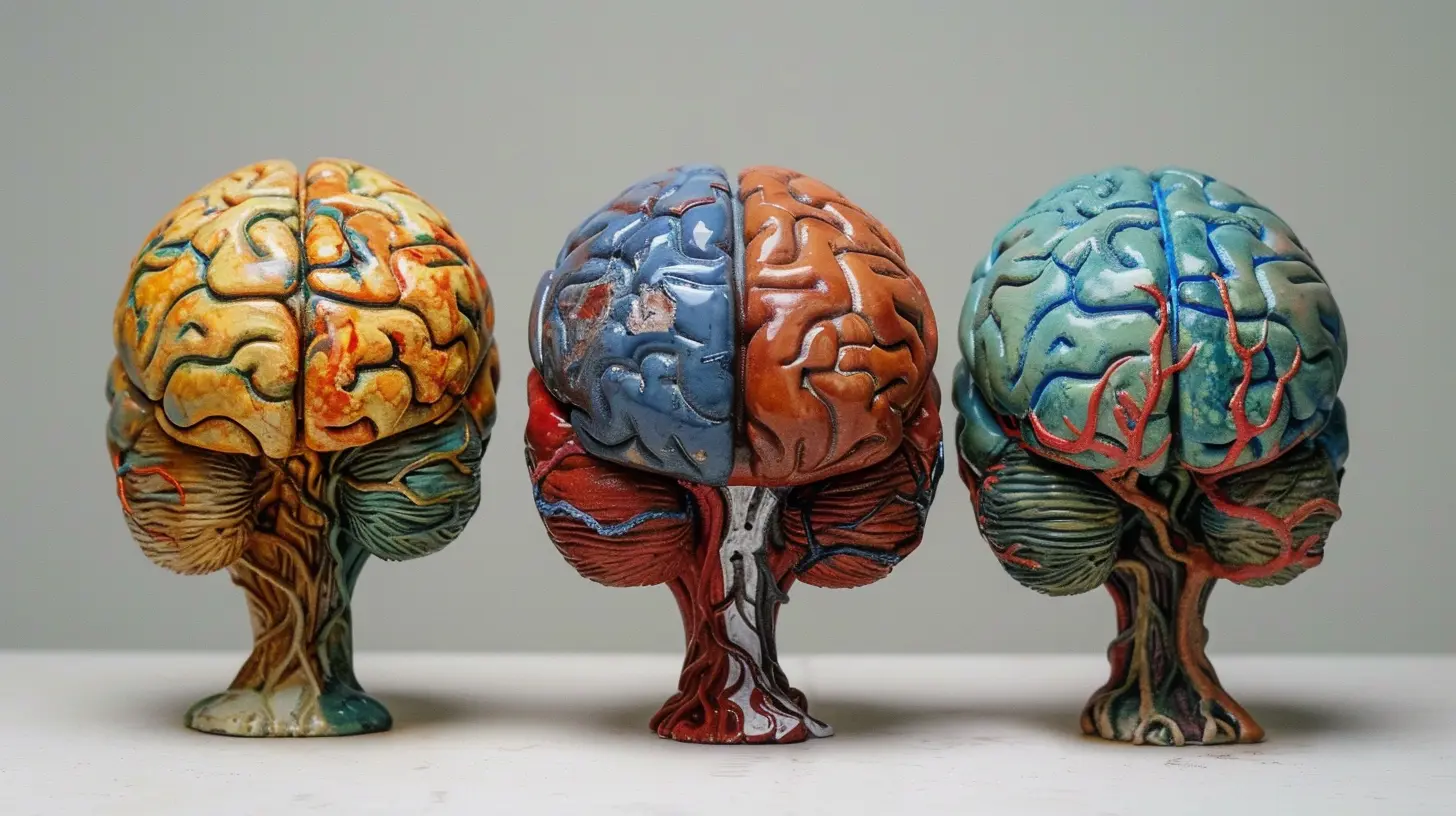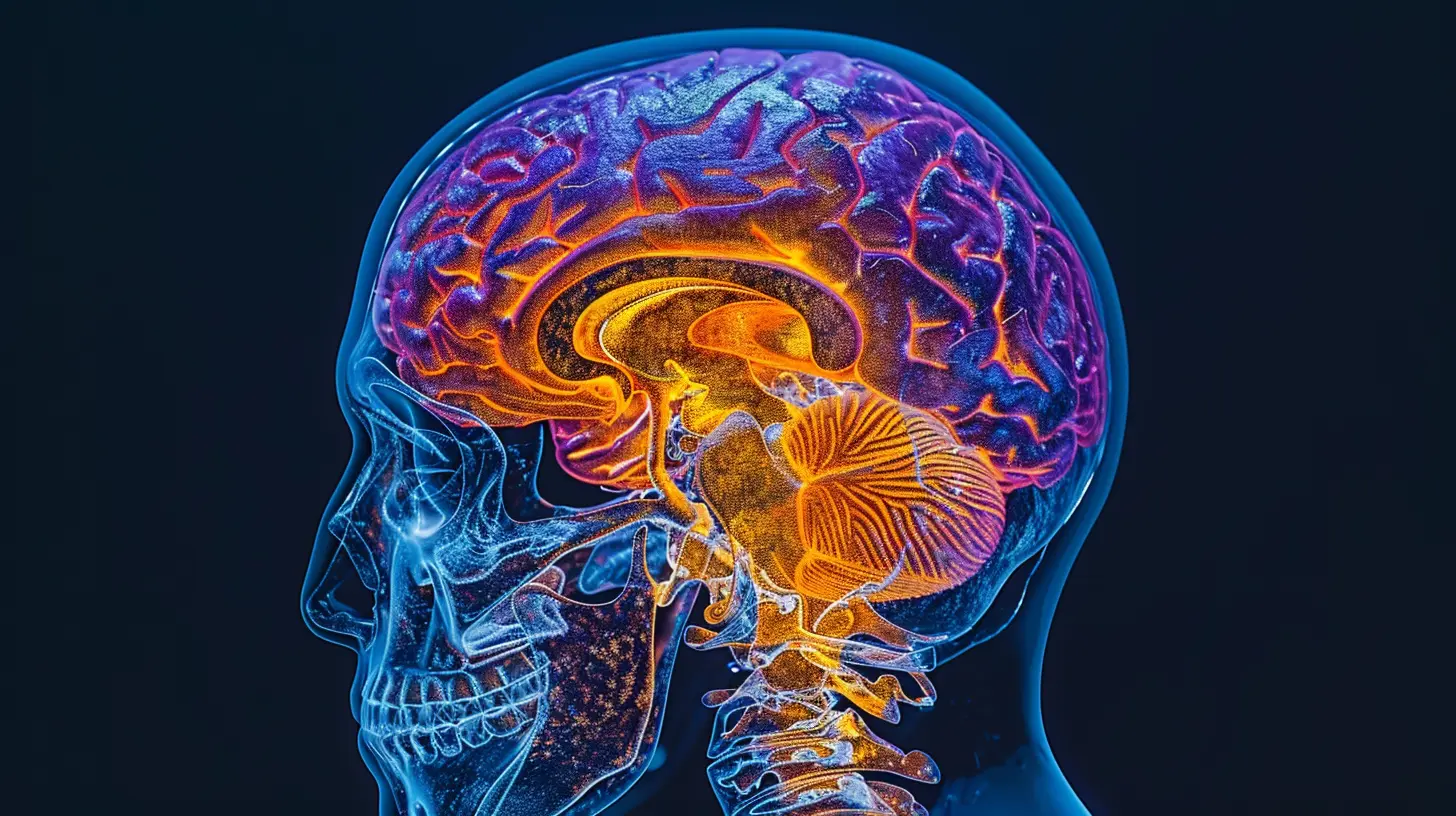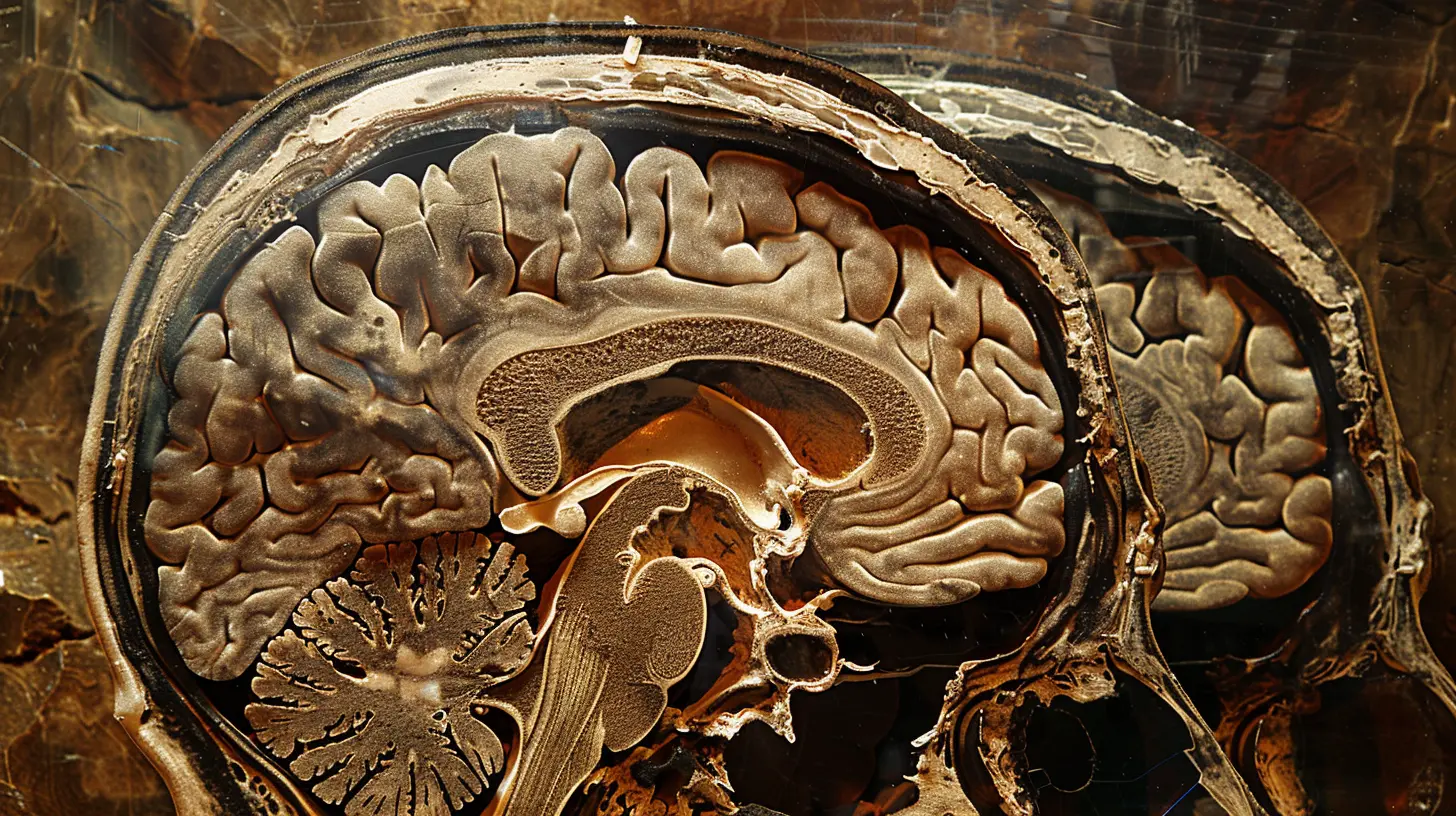How Schizophrenia Affects the Brain: A Neuroscientific Perspective
21 October 2025
Schizophrenia is often misunderstood, and its portrayal in media doesn't always help. Though it's commonly associated with hallucinations and delusions, the real impact of schizophrenia goes much deeper, especially when you take a closer look at the brain itself. But how, exactly, does schizophrenia affect the brain? What is happening neurologically when someone is experiencing symptoms? Let's dive into the complex world of brain science to better understand this condition.

What Is Schizophrenia?
Before we explore the brain mechanics, let's briefly define schizophrenia. Schizophrenia is a chronic mental disorder that affects how a person thinks, feels, and behaves. People with schizophrenia often appear to have lost touch with reality, which can be distressing both for them and those around them. Symptoms may include hallucinations, delusions, disorganized thinking, and severely altered behavior.But here's the thing: schizophrenia isn't just a "mental" problem. It's a brain issue, and understanding the neuroscience behind it can offer insights into why these symptoms happen and how we can potentially treat them.
The Brain's Role in Mental Health
The brain is like the control center of our entire being, right? It regulates our thoughts, emotions, and behaviors. When something goes wrong in the brain's functioning, it can lead to a variety of mental health conditions, including schizophrenia. In schizophrenia, certain areas of the brain don't communicate properly, and this malfunctioning leads to the symptoms we see.Understanding the brain changes associated with schizophrenia can help us not only understand the disorder better but also develop more effective treatments.

How Schizophrenia Affects Different Brain Regions
Schizophrenia doesn't just affect one part of the brain. Instead, it impacts several regions, each of which is responsible for different aspects of our mental functioning. Let's break it down.1. The Prefrontal Cortex: The Brain’s Executive
The prefrontal cortex is the part of the brain responsible for decision-making, problem-solving, and controlling emotions. It's basically the brain's command center. In individuals with schizophrenia, this area tends to be less active. This underactivity can lead to cognitive deficits, such as difficulties in organizing thoughts or making decisions. Imagine trying to run a business without a CEO; things can get chaotic, right?That’s what happens in the brain when the prefrontal cortex is sluggish. People with schizophrenia may struggle with tasks that require concentration, planning, or organizing their thoughts logically.
2. The Hippocampus: Memory Keeper
The hippocampus is crucial for memory formation. It's like the brain’s filing cabinet, where information is stored and retrieved when necessary. Research shows that people with schizophrenia often have a smaller hippocampus, which could explain why they experience memory problems and confusion.This shrinkage doesn't happen overnight. In fact, it’s often part of the brain’s response to a prolonged period of stress or illness. If your hippocampus isn’t functioning properly, it can distort your perception of reality, contributing to the hallucinations and delusions often seen in schizophrenia.
3. The Thalamus: The Relay Station
The thalamus acts as a sort of relay station in the brain, processing and transmitting sensory information to various parts of the brain. In schizophrenia, there's evidence to suggest that the thalamus doesn't function as efficiently as it should. This inefficiency may contribute to the sensory overload that some people with schizophrenia experience.You know that feeling when you walk into a crowded room and the sounds, lights, and people become overwhelming? Now, imagine feeling like that all the time. That’s similar to how disrupted thalamus activity might feel for someone with schizophrenia.
4. The Amygdala: The Emotional Hub
The amygdala is responsible for processing emotions. In schizophrenia, the amygdala may become overactive, leading to heightened emotional responses. This could explain why people with schizophrenia often experience intense feelings of paranoia or fear even when no real threat exists. It’s like having a car alarm that goes off at the slightest breeze—annoying, and not particularly helpful.
How Neurotransmitters Play a Role in Schizophrenia
Now that we’ve covered the brain regions involved, let’s talk about the chemicals that keep those regions communicating: neurotransmitters. These little messengers are crucial for brain function, and when they’re out of whack, the results can be disastrous.1. Dopamine Dysregulation
If you're familiar with schizophrenia research, you've probably heard of dopamine. Dopamine is a neurotransmitter that plays a key role in how we experience pleasure and motivation. In schizophrenia, there’s too much dopamine in some parts of the brain and too little in others. This imbalance is believed to be one of the primary culprits behind the symptoms of schizophrenia.Think of dopamine as a volume dial on a stereo. In certain areas of the brain, that dial is cranked up too high, causing hallucinations and delusions. In other areas, it’s too low, leading to symptoms like lack of motivation and emotional flatness. Finding the right balance of dopamine is crucial for managing schizophrenia symptoms.
2. Glutamate Dysfunction
Glutamate is another important neurotransmitter, responsible for sending signals between nerve cells. Some research suggests that people with schizophrenia have abnormal glutamate activity, which could contribute to cognitive symptoms like memory impairment and difficulty focusing.While dopamine is often the star of the show when it comes to schizophrenia research, glutamate is like the understudy waiting in the wings. As we learn more about the role of glutamate in schizophrenia, it’s possible that new treatments will emerge targeting this neurotransmitter.

Structural Changes in the Brain
In addition to problems with brain regions and neurotransmitters, people with schizophrenia often experience actual structural changes in their brains. These changes can be observed through brain imaging technologies like MRI or CT scans.1. Ventricular Enlargement
One of the most well-documented structural abnormalities in schizophrenia is the enlargement of the brain’s ventricles. The ventricles are fluid-filled spaces in the brain, and in people with schizophrenia, these spaces tend to be larger than normal. This enlargement is often taken as a sign that there has been some loss of brain tissue, particularly in areas responsible for higher-order thinking.2. Gray Matter Loss
Gray matter is the part of the brain that contains most of the brain’s neuronal cell bodies. It’s crucial for processing information. Studies have shown that people with schizophrenia tend to lose gray matter over time, particularly in the prefrontal cortex and temporal lobes. This loss of gray matter is associated with worsening cognitive and emotional symptoms.3. White Matter Abnormalities
White matter, on the other hand, consists of the nerve fibers that connect different parts of the brain. Abnormalities in white matter connections have been observed in people with schizophrenia, suggesting that the brain’s communication network is disrupted. Imagine trying to run a city where none of the roads connect properly; traffic would be a nightmare, and nothing would function smoothly. That’s what happens in the brain when white matter connections are faulty.Schizophrenia and Neurodevelopment
Interestingly, schizophrenia is often considered a neurodevelopmental disorder, meaning that the brain abnormalities associated with it may begin long before symptoms emerge, possibly even in the womb. Factors like genetics, prenatal stress, and environmental influences can all contribute to abnormal brain development, which may eventually lead to schizophrenia.1. Genetics
Genetics plays a significant role in schizophrenia. If you have a family member with the disorder, your chances of developing it are higher. However, schizophrenia is not caused by a single gene but rather by a combination of genetic factors. It’s like baking a cake: you need all the ingredients in the right amounts, and if something is off, the result won’t be what you expected.2. Environmental Factors
Environmental factors, such as exposure to viruses during pregnancy or complications at birth, can also increase the risk of schizophrenia. These factors may interfere with brain development, setting the stage for the disorder to emerge later in life.
Can We Reverse These Brain Changes?
Here’s the million-dollar question: can the brain abnormalities in schizophrenia be reversed? The short answer is, we don’t know for sure yet. However, treatments like antipsychotic medications and cognitive behavioral therapy (CBT) can help manage symptoms and improve brain function.Antipsychotic medications work by targeting neurotransmitter imbalances, particularly dopamine. While they don’t "cure" schizophrenia, they can help reduce the severity of hallucinations and delusions. Meanwhile, therapies like CBT can help individuals develop better coping strategies for their cognitive and emotional challenges.
Research is ongoing, and new treatments, including brain stimulation techniques and novel medications, are being explored. The hope is that as we learn more about how schizophrenia affects the brain, we’ll be able to develop more targeted and effective treatments.
Conclusion
Schizophrenia is a complex disorder that affects the brain in multiple ways, impacting everything from decision-making to emotional regulation. By understanding the brain regions involved, the role of neurotransmitters, and the structural changes that occur, we can paint a clearer picture of what’s happening inside the brain of someone with schizophrenia.Though much remains to be discovered, advances in neuroscience are bringing us closer to understanding and treating this challenging disorder. And who knows? In the future, we may be able to prevent or even reverse some of the brain changes associated with schizophrenia.
all images in this post were generated using AI tools
Category:
SchizophreniaAuthor:

Alexandra Butler
Discussion
rate this article
1 comments
Denise Garcia
Diving into the brain's quirky carnival of schizophrenia! 🎪🧠 Imagine neurons playing hide-and-seek while dopamine throws a wild party. It’s a fascinating maze of thoughts and realities—who knew our minds could be such a zany amusement park? 🎢✨
October 21, 2025 at 4:55 AM

Alexandra Butler
Thank you for your creative take! Schizophrenia truly is a complex and fascinating topic, and exploring the brain's inner workings can reveal much about its unique challenges and experiences.


